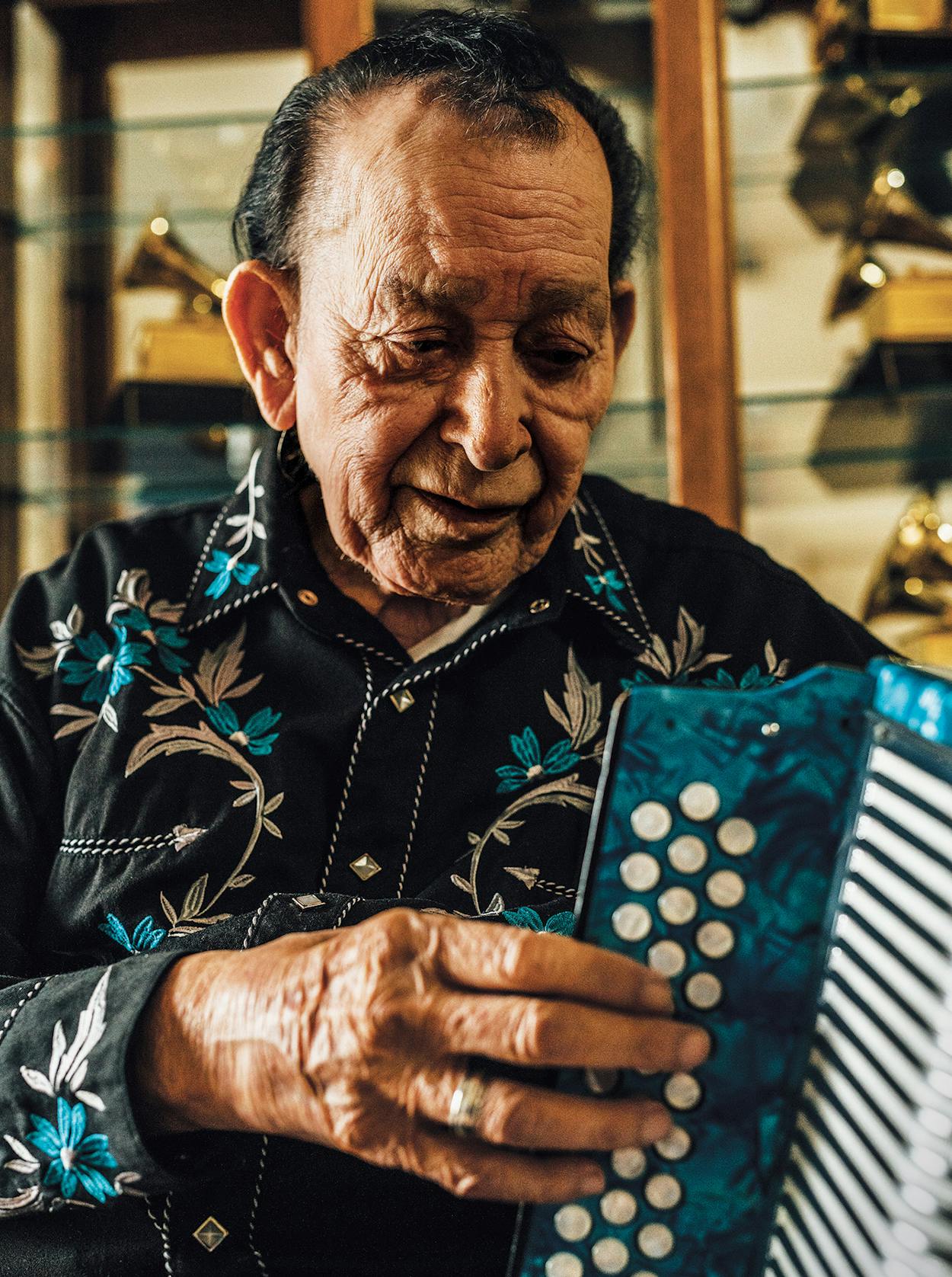San Antonio’s 83-year-old Flaco Jiménez—son, grandson, and brother of celebrated accordionists—has won six Grammys, including, most recently, a lifetime achievement award.
In the late sixties, a friend of mine, Doug Sahm, asked me if I wanted to blend in with the country rock he played. He was recording at Atlantic Records, so I said yes. The album was Doug Sahm and Band. That was my first experience at a major label, and that’s where I met Dr. John and Bob Dylan. From there, word got around that I could play not just conjunto music—I could play country or a little rock. I started getting offers to record with heavyweights like Dwight Yoakam, Buck Owens, and Linda Ronstadt. It was my heyday.
I like to cross over. If I can understand what an artist is doing, then I can get the feel of it and blend to it. When I did “Streets of Bakersfield” with Dwight and Buck, the producer, Pete Anderson, said, “Just play your ass off.” So when they started recording, I started doing some weird stuff, and Pete said, “No, not that much, man. You’re doing something that doesn’t fit. Make it as simple as possible, and then people will understand.” I was playing more progressive things, more advanced things, but I was careful enough to know when to blend in and not overpower whoever I’m recording with.
Along the way, Doug, Freddy Fender, Augie Meyers, and I formed the Texas Tornados. There was no plan at all. We were in San Francisco. It was a place called Slim’s. I was on tour with my band, and Freddy and the other guys were playing someplace nearby. We were invited to jam, without rehearsing, without nada. We played about three songs, and there was a lot of good response to what we did. Paige Levy of Warner Records talked to Doug and made a plan for recording an album, which was Texas Tornados [in 1990]. Our hit, “(Hey Baby) Que Paso,” went sky-high. I mean, everybody knows “(Hey Baby) Que Paso.” We did about four albums, and then Doug passed away in 1999. We kept on playing, and then Freddy died in 2006. And then it was just me and Augie. Two tornadoes.
I think this young generation of conjunto, it’s changed a lot. Some bands started adding synthesizers and other kinds of instrumentation. It’s too mechanical, I think. The feel is not there. They put too much sugar in the coffee. It might be that I’m old-fashioned, but being old-fashioned is the real thing. Way back when, conjunto wasn’t given any respect at all. They called it cantina music. Nowadays conjunto has respect all over the world.
Music has been my life ever since I grabbed the accordion. It’s an instrument that I’ve got in me. I can talk to my accordion and make it respond to me; I can make it happy or make it cry. I started as a young kid, when conjunto was real fresh. I’m not young anymore, but I still think I can handle the accordion. It’s in my blood. I can say I’ll take it easy for a while because of my
age, but music has been all of my inspiration.
This article originally appeared in the February 2023 issue of Texas Monthly with the headline “Accordion King.” Subscribe today.
- More About:
- Music







